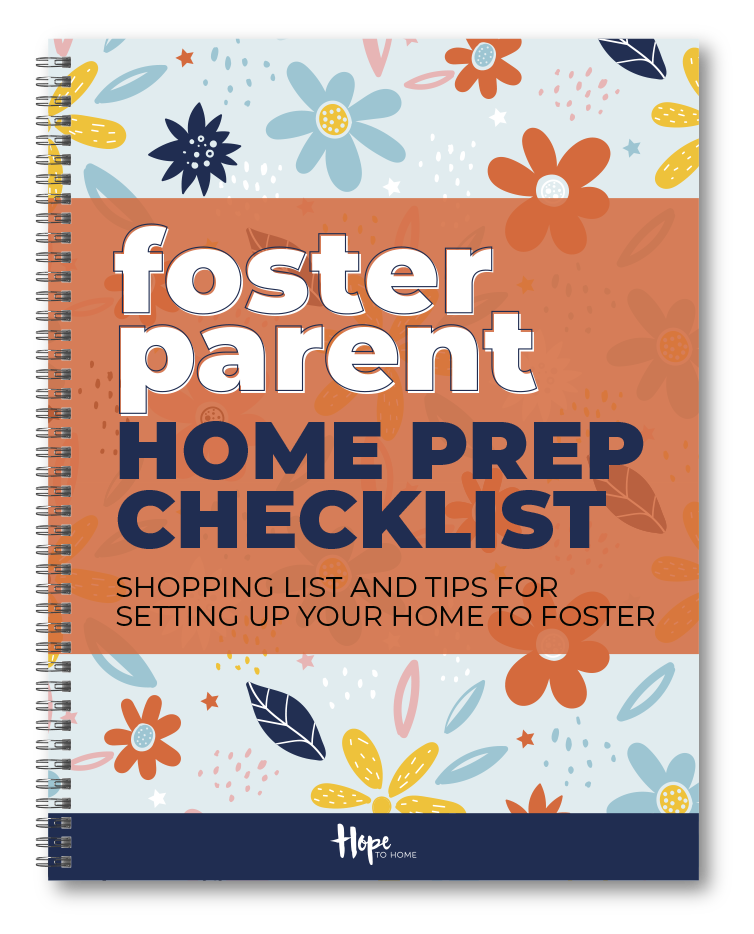I was supposed to keep that smelly, stuffed, poodle?! Some things I wish I knew before becoming a foster parent.
Some things I wish I knew before becoming a foster parent. Be realistic about what you can handle. In other words, do not feel obligated to accept the first placement call. There will be more. It doesn’t do you or the child good to take a placement you can’t handle yourself or as a family. On the other hand, if you find you have a child that you just cannot handle, let your caseworker know ASAP that they need to find a new home for the child. It could take time to find a new home and work with the new foster parents. You will grieve, and it’s okay.
Document
Take a lot of pictures, document everything, and keep little notes or items that their biological parents or grandparents get them. You can store the items when they outgrow them or if they happen to be inappropriate age toys, you can store them until they are the right age. I personally wouldn’t throw away that smelly, stuffed poodle, you can ask them if you can wash it though! That may be a big NO and respect the child’s wishes because it may be the only thing that reminds them of home. You can even keep a notebook that goes between visits with the biological family if appropriate. I also keep a separate box that is large enough to store school papers, drawings, cards the kids gave us, and other mementos that we as their foster parents keep. I love these kiddos so much, and I want to treasure the memories. Everything else… went on to the pre-adoptive homes they moved into.
Baby Tree is Now Available!

Discover the heartwarming tale of Baby Tree, perfect for children who have come into foster care early in their lives. This inspiring story offers hope and support to foster and adopted children, their caregivers, and any child dealing with loss, reminding them that God has a plan for their future. Click to buy and inspire young readers with a message of love, resilience, and community!
I personally wouldn’t throw away that smelly, stuffed poodle, you can ask them if you can wash it though!
Keep a list of questions to ask the licensing worker or whoever calls you with a potential placement. Some things I wish I knew before becoming a foster parent: Ask more questions. There is a more extensive list in the blog post here: 6 Questions to Ask When You Get a Call About a Foster Placement but, I list a few to get you started here:
- Age of child or sibling group
- Behaviors
- Disabilities/medical needs
- Reason for being removed
Even if they call, it may not be
Let me add, just because they call about a placement doesn’t always mean it will happen. Sometimes a family member steps forward or another foster family they called first, calls back. If you know your answer then and there give it, because you typically have a tiny window of time to decide.
Join a foster parent support group. They get it, and you’ll feel less crazy.
Document everything (can’t say it enough). If you verbally talk to your caseworker, then follow up with an email reiterating what you spoke about or confirming decisions. I think many foster parents can attest. This can save lots of time and hassle.
Those around you
Realize that your decision to foster may impact relationships, either positively or sometimes negatively. I have personally found the majority of my friends are understanding and respectful. Still, it doesn’t always mean when they have a party, they want me and all 7 (at one point) of my kids to come along. Take it with a grain of salt, because you are doing so much for these kiddos and having a considerable impact on their lives and sometimes really hard for others to understand.
Caseworkers are usually overwhelmed with a huge caseload. But that doesn’t mean that you have to accept “I’m working on it” or “I’ve made phone calls about it,” as a reasonable answer for weeks. Don’t be afraid to CC your caseworker’s supervisor on emails if there is a questionable situation going on. You’re not getting them in trouble; it just helps keep everyone honest. Go to every court date if you are able. Ask your caseworker for the dates. You will typically hear more in court than from your caseworker.
Be prepared to wait
Practically everyone is late for everything. Caseworkers, GAL, driving services, and bio parents at visits, so don’t assume anything is done on time. On the subject of visits, stick around your house and don’t make plans during a visit. I can’t even count the visits that got canceled last minute. Or bio parents didn’t show up even after the kids were at the location with a case aid or caseworker.
Lots of running
There will be lots and lots of appointments, especially in the first few months. In my experience, kids that come into care have had very little medical care and need to be caught up when they are placed within a specific period. Vaccines, glasses, dentist, lice treatment, doctors, specialists, early intervention, caseworker visits, casa visits, GAL visit, school or daycare registration, and ongoing therapy, to name a few.
Organize
Organize your documents. I know some foster parents use Dropbox and share it with their caseworker, some make hard copies of everything and file it. Personally, I do a combination of scanning all the documents and keeping hard copies. It is nice to have all the scanned copies on hand for the future. You can email them to your caseworker, pass on to a pre-adoptive home, or bio parents if the kids are returning home.
Trauma Training
Sign up for trauma training class if you haven’t already. Hours go toward re-licensing, and it is so helpful. Most often, the kids are very traumatized, and what may work on your biological children most often doesn’t work on your foster kids. Find out as much as you can about the life they lived before coming to your home. It is helpful when parenting a child that may not have had much if any supervision. They may need their own space or area to play, and you may need to work slowly to play with them, or they may be glued to you because they didn’t have that parental figure. So much is trial and error and trying hard to understand they have wounds and triggers.
The first month of a new routine and new caregivers for the kiddos is tough. Drop any expectations. It usually gets lots better after about a month. Routine is key. We have found that a consistent morning and nighttime routine is super valuable for the kiddos and for us foster parents to have time to ourselves after they are in bed.
Hair Care
If you do not have natural hair and don’t have experience with caring for it, you may want to get some now. Our first placement of 2 African American toddlers totally threw me for a loop with hair. I give you natural hair ladies SO MUCH CREDIT AND RESPECT for the work that goes into your hair! Watch YouTube videos or find someone to help. Thankfully we had a lady at our church that took us under her wing and went through everything from product to styling to frequency of washing/conditioning.
Bio Family
Even if the case goes TPR (Termination of Parental Rights) and you adopt. And it is safe for you and your kiddos to keep in touch with bio parents or relatives, do it. It’s going to be important to the child at some point. Don’t let your agency/DCFS try to keep you away from contact if you feel it’s okay. I have first-hand experience with this in my own story that I will share eventually in another post… another day.
I would appreciate hearing from you and your experiences. If you have anything to add to: “Some things I wish I knew before becoming a foster parent”, please comment or email me. Fostering is a unique adventure. Unique to the kiddos in care and to your sweet and loving heart. That is opening up to love on some extraordinary kiddos. Your adventure awaits, and hearts will be changed… forever.




